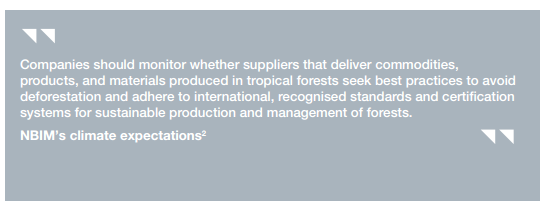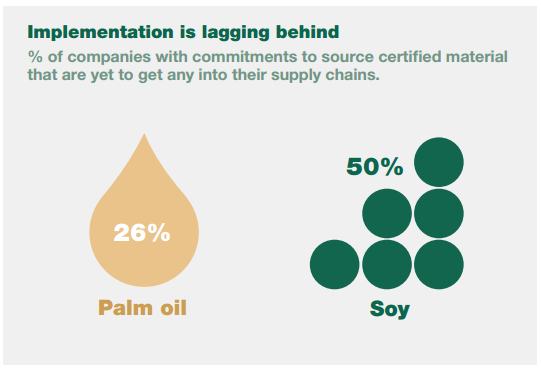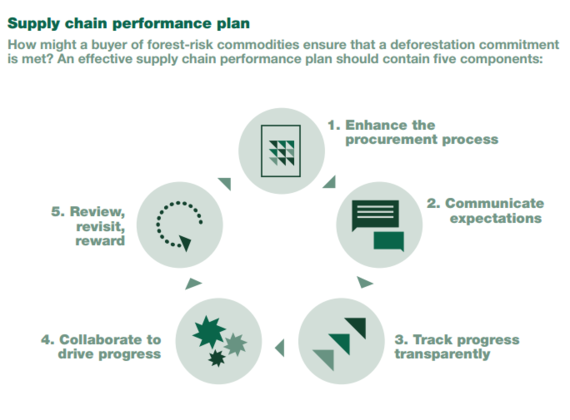Palm oil production drives the Indonesian economy. In 2015 Indonesia produced 32.5 million metric tons of palm oil, 26.4million tons of which was bound for the export market and worth US $18.6 billion.
Despite being so lucrative to countries such as Indonesia, the current approach to palm oil production is also heavily contributing to widespread, rapid deforestation and land-use change. The effects of this became global news late last year when some 10,000 square miles of South Sumatran peatland caught fire.
Forest fires have become an annual occurrence in Indonesia. Last year's fires have arguably been the largest, worst and best documented to date. So far these fires have emitted more greenhouse gasses than the US economy does annually, created the highest concentration of atmospheric carbon monoxide ever seen and cost the Indonesian economy some US$16.1 billion (almost 2% of national GDP and twice the cost of rebuilding after the 2004 tsunami).
Political will to find solutions to this issue is gradually being galvanised. At COP21 Norway, Germany and the UK committed to provide over US$5 billion between 2015 and 2020 for forest countries demonstrating measured, reported and verified reductions in forest loss. In Indonesia, President Joko Widodo's extension of the moratorium on new forest concessions, the inauguration of the Peatlands Restoration Agency and the revoking of concessions for oil palm companies may signal the start of a concerted push to solve the issue of forest fires. Though this is a start, much more monetary and intergovernmental support is needed to reach long-term solutions.
But without a shift to sustainable business practices by companies, the ambition of halting deforestation will always be beyond reach.
Last month I attended the first general assembly of the Tropical Forest Alliance (TFA) 2020 in Jakarta. This inaugural event brought together over 80 partners, representing governments, companies and NGOs from around the world, with a shared ambition to accelerate the transition to deforestation-free supply chains.
The good news is companies see that there are opportunities in taking action. Nearly 90% of companies disclosing to CDP reported opportunities related to sustainable production or sourcing of forest-risk commodities. While obvious benefits to sustainable sourcing include creating brands consumers trust and maintaining the longevity and resilience of supply, another is that of access to capital. Investors are becoming increasingly concerned with the sustainable credentials of the companies and commodities they invest in.
On the other side of the coin, the business risks associated with unsustainable forest use are also high. Following the suspension of IOI Group (a Malaysian palm oil producer) by the Roundtable on Sustainable Palm Oil (RSPO), Unilever, Kellogg and Mars have all disengaged the palm oil producer from their supply chains. An action like this will surely cause similar producers to sit up and listen.
With the business risks and opportunities associated with deforestation so clear, it's no wonder that many companies and governments have targets on deforestation already in place. In the case of the 400 or so companies in the Consumer Goods Forum this is net-zero deforestation by 2020 across the whole supply chain. Sadly, the pace of translation of such targets into action is slow. Our data shows that 26% of companies with commitments to source palm oil sustainably are still yet to introduce any sustainable palm oil into their supply chain.
One reason for this is, inevitably, the complexity of extensive supply chains. Marks and Spencer and Unilever are two companies making a concerted effort to overcome this. Their announcement of a progressive "Produce and Protect" approach provides clear intention for preferential sourcing of forest commodities. This is designed to simultaneously offer support for and benefit from strong government commitment, public investment and sustainable sourcing.
Another perhaps more vital stumbling block is the difficulty in meeting demand.
During my time in Indonesia I visited a project working to map smallholder farmers in order to enable collaboration and assist them in being able to produce sustainable oil palm. Even through this short experience it is clear that although great work is being done, the challenge in scaling up such projects to meet the demand for sustainable palm oil is a big one.
But there are ways forward for companies seeking to fulfil their deforestation commitment. Our latest report takes a deep dive into five ways companies can better capitalize on both the push factors associated with business risk and the pull of opportunities. Take a glimpse at what this looks like over at our website.



